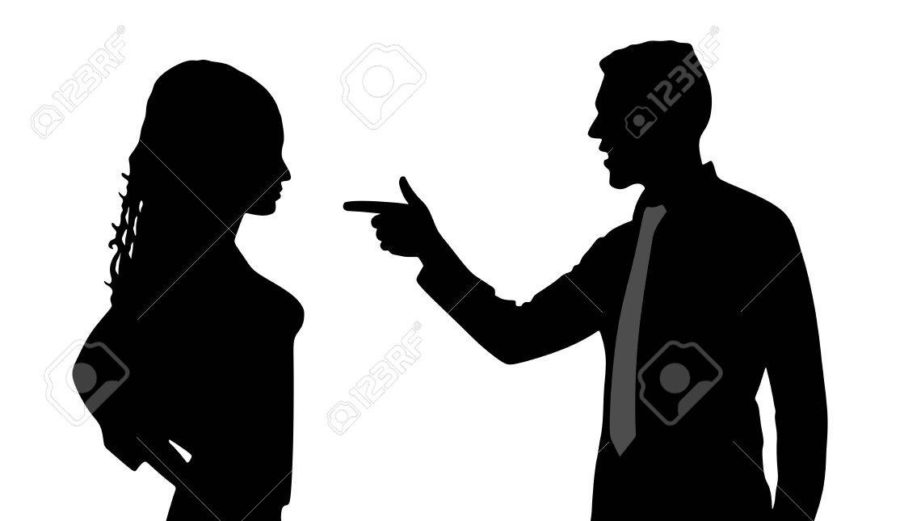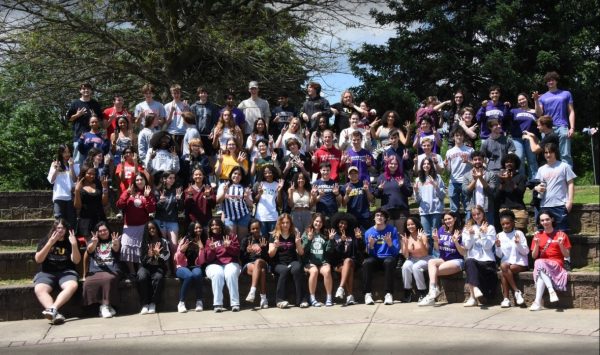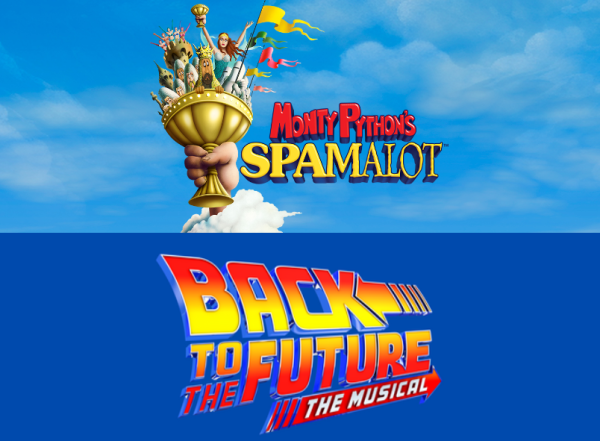What Does She Think When She Hears You Say “B*tch”?
About a month ago, I was joking around with my mom. I don’t remember what the conversation was about, but I remembered saying the word “hoe” in a joking way. It didn’t sit well with my mom. She asked me, “Why would you say that word? It’s derogatory towards women. You should never say it.”
This stuck with me, because I found myself immediately having the urge to say “No it isn’t,” but, in technicality, it is. The word “hoe,” along with its wide array of synonyms and other words like b*tch, etc., are very much derogatory words towards women, and yet, I don’t bat an eye at them being used in most cases. But then, if I hear something along the lines of “she’s such a slut,” or “women are b*tches,” then I very much do bat an eye. And for my mom, she bats an eye no matter the situation.
So, I decided to interview several women on how they feel about derogatory female language being used, and figure out why it’s hard to have a definitive answer.
Some of the women believed that derogatory words will always be derogatory, and context does not change the history of these words, nor does it give you a reason to use them. SSFS French teacher Cathy Harrison said, “I love words. I love understanding what words mean. So, I tend to be very careful in choosing my words, because they can hurt…There are women on my soccer 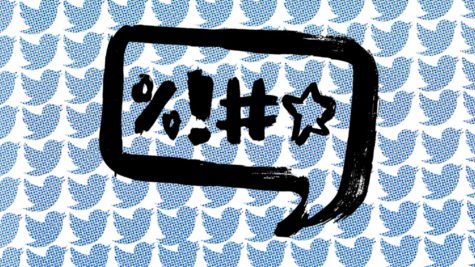 team who will throw the word b*tch around, talking about the other team, but then they’ll also use it for our team, like, “come on, b*tches, let’s go!” I’ve heard it both ways. It never really totally makes me feel comfortable, because I think it’s derogatory by nature, to a certain extent.” Academic Dean Rasha El-Haggan also said, “I have strong feelings about derogatory terms in general. You will not find me to be the type of person who uses certain curse words. I think the most I’ll say is ‘damn’…I like what Malcolm X has to say about this, which is basically, [when] using those types of terms or types of words, there is better vocabulary to explain how you feel, better than certain derogatory terms.”
team who will throw the word b*tch around, talking about the other team, but then they’ll also use it for our team, like, “come on, b*tches, let’s go!” I’ve heard it both ways. It never really totally makes me feel comfortable, because I think it’s derogatory by nature, to a certain extent.” Academic Dean Rasha El-Haggan also said, “I have strong feelings about derogatory terms in general. You will not find me to be the type of person who uses certain curse words. I think the most I’ll say is ‘damn’…I like what Malcolm X has to say about this, which is basically, [when] using those types of terms or types of words, there is better vocabulary to explain how you feel, better than certain derogatory terms.”
Others said that they were comfortable with using these words themselves with people that they’re close with, but recognized that these words are still used frequently today to oppress women. US Senior Begai Prom expanded upon how context mattered by saying, “I can’t say that my opinion really lies one way or the other, because it depends on the context…My friend Mecca, literally, I don’t call her by her first name and she doesn’t call me by my first name. We call each other terrible names. But if a guy or a girl were to use it to offend me, I think that they would accomplish their goal because it would hurt.” In the same vein, History Department head Kathy Laughlin added in, “I think it depends on who’s saying it, and the context in which they say it…With my girlfriends, you may say, “oh, you’re such a silly b*tch,” and that’s totally different than if I have a female who’s angry and uses b*tch. You know, “you’re such a b*tch.” Context is important.”
In exploring words that are rooted in misogyny, it’s important to explore how women feel impacted by misogyny. Not surprisingly so, many teen girls did not feel that misogyny affected them blatantly in their day-to-day lives, since they hadn’t been around enough to be in many situations or places that were misogynistic. Begai said, “I don’t think I experience it, but I’ve seen other girls experience it…I think that sexuality is oftentimes a very grey area, especially for a woman. It’s hard, sometimes, to find the line between ‘am I being sexually explorative?’ and ‘Am I being a hoe?’” She touched on how the word “hoe” is frequently used to demean girls who are open in their sexuality. Sophomore Esther Feron mentioned her religious upbringing and how she experienced misogyny, saying, “In some religious Jewish communities I have felt really uncomfortable with the standards and barriers I was confronted with as a woman, but I recognized that the people who were doing it didn’t exactly realize the impact of their philosophies, because they did not necessarily think that it was sexist…Also like, there are a lot of moments when I have felt empowered to embrace my womanhood by those same people and communities.”
The C/Kathies (C or K, respectively) could both recall times in their lives when they were discriminated against for being women. On whether she’d experienced misogyny, Cathy said, “Oh, constantly, when I was growing up. I grew up in the 60’s…I was constantly told things that I couldn’t do when I was growing up because I was a girl.” Additionally, Kathy said, “In the workplace, I think that things have happened or not happened, some things that are said or not said, or the way that people deal with women, has been misogynistic.” Speaking of the workplace, Cathy shared a story about her experience as a woman professionally, saying, “I was told that I couldn’t have children by my boss and still maintain my job. I fought that one. I made a deal with him. I said, ‘If I can finish out the year, being pregnant, by taking fewer than the average amount of sick days than the rest of the faculty, and still complete my duties as assigned, is that good enough for you?’ He said, ‘You can’t do that,’ and I said ‘Watch me.’ So I had about 2 or 3 days of maternity leave, and I was right back to work again.” What a badass.
No two people have the same experiences in life, however, and oftentimes things like race, religion, age, etc. impact women’s experiences beyond what we would initially think of as “misogyny.” Rasha talked specifically about how being a Muslim woman who wears a scarf affects her life, saying, “It’s not necessarily because I’m a female, but it’s because I’m a female that dresses this way…In high school, I was called a ‘sand n-word’ because I am of Arab descent. It wasn’t because I was female, but it was because of my clothing, that indicates that I am Arab.” Begai talked about her experiences as a black woman, saying, “Being a woman of color is interesting because you’re sort of playing this dismantling game, where you want to dismantle all of the stereotypes that are already set against you. So I’ll walk into a room, and maybe I don’t want to be really flamboyant, and maybe I don’t want to assume the character that people have set out for me…I don’t want to be the angry black woman, I don’t want to be the loud black woman, I don’t want to be the ghetto black woman…But that’s living for others, and that’s something that I try not to do.”
Lastly, many of the women discussed the process of reclaiming derogatory words, of turning them around so that they’re empowering. Kathy said, “There is a movement among some women to take back that word [slut], and to give it empowerment in terms of women owning and recognizing their own sexuality…it’s simply ‘look, I’m a human being, and sex is important to me, 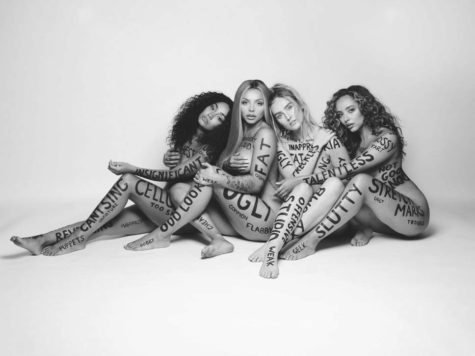 and I take pleasure in it, and so therefore I am embracing the word ‘slut’ simply to mean that I embrace my own sexuality.’” But, on the other hand, she pointed out that the word “slut” is not used that way universally, and still carries offense. “My sons have definitely talked about a girl being a thot, or a slut, and I lose my mind, because rarely will they say the same thing about a man.” Even among women, it can still be used in a hurtful way. Begai said, “There are times where [if] I don’t like a girl, or she did something with a guy I liked, I’d be like ‘Oh, she’s such a hoe.’ It’s so normalized that I don’t even realize that I’m contributing to that stigma in general.” So, at least with “slut,” it’s still a touchy subject, and the use of the word in a positive light doesn’t mean that it’s not still used in negative ways.
and I take pleasure in it, and so therefore I am embracing the word ‘slut’ simply to mean that I embrace my own sexuality.’” But, on the other hand, she pointed out that the word “slut” is not used that way universally, and still carries offense. “My sons have definitely talked about a girl being a thot, or a slut, and I lose my mind, because rarely will they say the same thing about a man.” Even among women, it can still be used in a hurtful way. Begai said, “There are times where [if] I don’t like a girl, or she did something with a guy I liked, I’d be like ‘Oh, she’s such a hoe.’ It’s so normalized that I don’t even realize that I’m contributing to that stigma in general.” So, at least with “slut,” it’s still a touchy subject, and the use of the word in a positive light doesn’t mean that it’s not still used in negative ways.
So what can be drawn from this? Several things, actually. Many women believed that the words were appropriate in certain contexts, but not in others. For the record, I happen to share that opinion myself. But there are other women who don’t believe that these words are ever appropriate, and that’s worth respecting. A lot of times, these women had had personal experiences with misogyny, or with racial or ethnic slurs like Rasha had faced, and they do not see slurs as something that can deviate from their original intended meaning. On that note, even, misogyny as a whole has had different effects on each woman’s life. Some felt it had never happened to them, some felt it had appeared multiple times in their life, and some felt that they had specific experiences due to being one “type” of woman that had impacted them. Misogyny, and women’s views on it, is hard to generalize, because about half of the world has the female experience, so there are endless variations of it. As Kathy said, “You can have two women who have the exact same experience, and their reaction and their feeling about that experience could be completely different.” It’s simple to say that using these words is “bad” when only talking about their derogatory usage, but when you examine other usages and get into the specifics of context, it’s far too nuanced to make a general statement. So, if you want to know what a woman thinks, ask her.
Images:
https://www.google.com/url?sa=i&source=images&cd=&ved=2ahUKEwj75Keng-zhAhUXv54KHedDAgYQjRx6BAgBEAU&url=http%3A%2F%2Fwww.sunbeamstudios.com%2F2019%2F01%2F22%2Flittle-mix-strip%2F&psig=AOvVaw0iyRxovnH6PlHAp7qNOGhd&ust=1556308408077878
https://www.google.com/url?sa=i&source=images&cd=&ved=2ahUKEwis85XwguzhAhWNhJ4KHQ6ADU4QjRx6BAgBEAU&url=https%3A%2F%2Fwww.123rf.com%2Fphoto_54460963_stock-vector-man-yelling-pointing-at-woman-vector.html&psig=AOvVaw31zQZsEtu6sc8r-BrtDk5r&ust=1556308437867720
https://www.google.com/url?sa=i&source=images&cd=&ved=2ahUKEwig4sabg-zhAhWUq54KHdZpBO8QjRx6BAgBEAU&url=https%3A%2F%2Fwww.fastcompany.com%2F3026596%2F140-characters-of-fck-sht-and-ss-how-we-swear-on-twitter&psig=AOvVaw0y8yFD33E6MpPYNynpd-Xl&ust=1556308531272025

Hi! My name is Irene Denniston and I'm an senior. This is my 14th year at SSFS, and my third year doing Wildezine. I've been doing creative writing, short...

